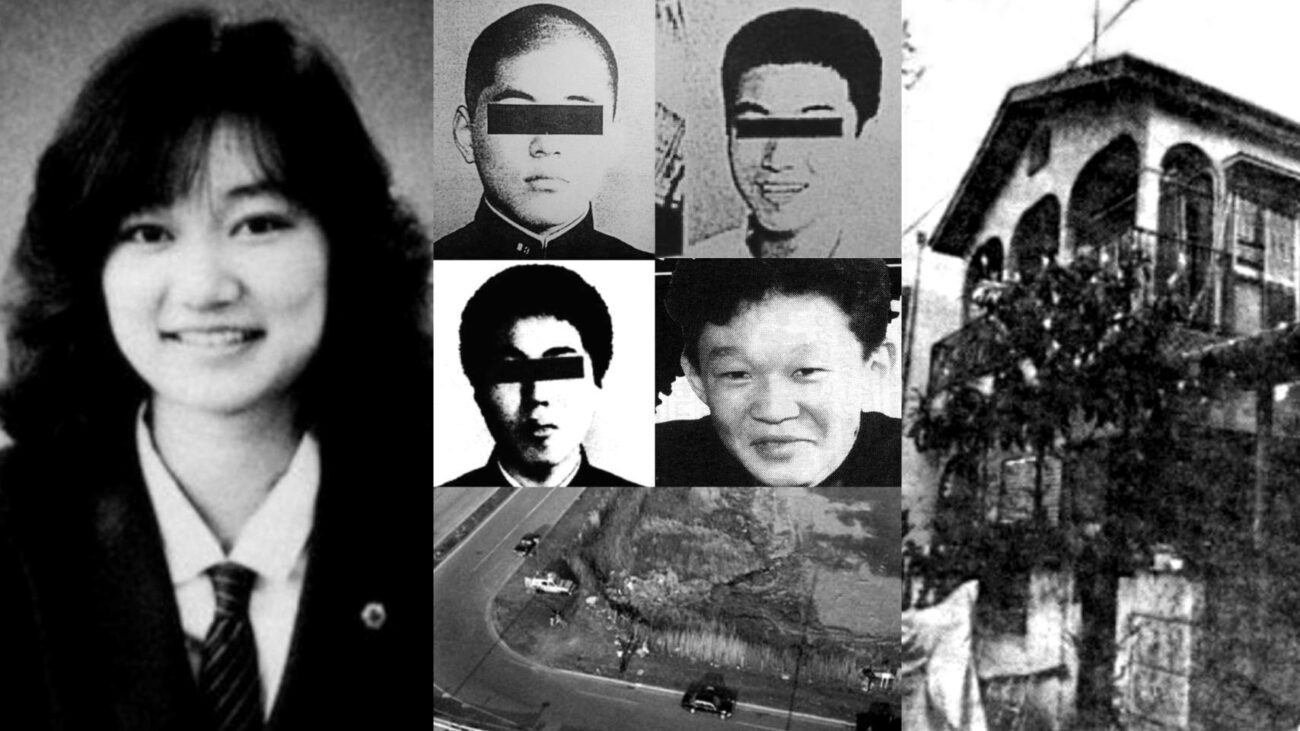Introduction to Junko Furuta’s case
In a case that shook Japan to its core, the tragic story of Junko Furuta unveils a harrowing tale of unimaginable cruelty and injustice. Brace yourself as we delve into the shocking true events surrounding this young girl’s life – a narrative that demands to be heard, remembered, and honored. Join us on this journey as we uncover the heartbreaking reality of Junko Furuta’s plight and the enduring quest for justice in her name.
The brutal torture and murder of Junko

The brutal torture and murder of Junko Furuta is a harrowing tale that shook Japan to its core. At just 17 years old, Junko became the victim of unimaginable cruelty at the hands of her captors. For 44 days, she endured incomprehensible suffering – physically, emotionally, and psychologically.
Junko was subjected to relentless beatings, sexual assault, and extreme acts of violence that no human should ever have to endure. The sheer brutality inflicted upon her defies belief and has left an indelible mark on those who have heard her story.
Despite her unimaginable pain and suffering, Junko never lost her will to survive. Her courage in the face of such unspeakable horrors is a testament to the strength of the human spirit.
The details of Junko’s ordeal are difficult to comprehend; they paint a picture of pure evil and serve as a stark reminder of the capacity for cruelty within some individuals. We must remember Junko’s story so that we may never forget the importance of seeking justice for victims like her.
The perpetrators and their sentences
The perpetrators of Junko Furuta’s case were four young men who committed unimaginable acts of cruelty. Hiroshi Miyano, Jo Kamisaku, Shinji Minato, and Yasushi Watanabe tortured and abused Junko for 44 days in a chilling display of depravity.
Despite the heinous nature of their crimes, the sentences handed down to the perpetrators sparked outrage among the public. The leniency shown towards them fueled demands for stricter punishments and reforms within Japan’s legal system.
Hiroshi Miyano received a 20-year sentence, while his accomplices faced varying prison terms. Many felt that these sentences did not reflect the severity of their actions or provide adequate justice for Junko’s suffering.
The light sentencing catalyzed discussions on improving victim protection laws and ensuring harsher penalties for perpetrators of such brutal crimes. The case shed light on gaps in Japan’s judicial system and prompted calls for change to prevent similar tragedies from occurring in the future.
The outcry for justice from the public
The case of Junko Furuta sent shockwaves through society, igniting a fierce outcry for justice from the public. People were appalled by the unimaginable cruelty inflicted upon this innocent young girl and demanded accountability for such heinous acts.
Social media platforms junko furuta with calls for swift and severe punishment for those responsible for Junko’s horrific ordeal. Hashtags demanding justice trended globally as individuals united in condemning the perpetrators and their actions.
Petitions circulated online, gathering thousands of signatures urging authorities to ensure those involved faced the full extent of the law. The public’s voice grew louder, refusing to let Junko’s suffering be forgotten or overlooked.
The collective outrage fueled a determination to seek justice for Junko and prevent similar atrocities from ever happening again. It was a stark reminder of the importance of standing up against injustice and holding those who commit unspeakable crimes accountable.
Impact on Japanese society and legal system
The case of Junko Furuta shook Japanese society to its core, revealing the dark underbelly of violence and cruelty that can exist even in seemingly civilized communities. The brutal nature of her torture and murder sparked outrage and disbelief among the public, leading to a reexamination of Japan’s legal system.
Many questioned how such horrors could have gone unchecked for so long, prompting calls for stricter enforcement of laws against violent crimes. The perpetrators’ sentences highlighted deficiencies in the justice system, with some arguing that they were not severe enough given the heinous nature of their actions.
In response to this outcry for junko furuta , there were efforts made to improve support systems for victims of abuse and strengthen penalties for those who commit acts of violence. Junko’s tragic story became a catalyst for change, pushing lawmakers to take a harder stance on crimes against women.
As Japanese society grappled with the aftermath of Junko’s case, it became clear that more needed to be done to protect vulnerable individuals from falling victim to similar atrocities. The legacy left behind by Junko continues to serve as a stark reminder of the importance of standing up against violence towards women.
Lessons learned and changes made in Japan following the case.
Following the tragic case of Junko Furuta, Japan was prompted to reevaluate its approach to handling cases of extreme violence and abuse. The brutal nature of Junko’s torture and murder shed light on gaps in the legal system and societal awareness regarding such heinous crimes.
The outcry for justice from the public sparked discussions on improving victim protection, enhancing punishment for perpetrators, and raising awareness about gender-based violence. Significant reforms were introduced to provide better support for victims, increase penalties for offenders convicted of violent crimes against women, and educate society about consent and respectful relationships.
Junko’s story served as a wake-up call for Japan to address issues related to bullying, domestic violence, and sexual assault more effectively. It led to increased efforts in prevention programs, counseling services, and legal measures aimed at safeguarding vulnerable individuals from harm.
Remembering Junko: Her legacy and impact on fighting against violence towards women
As we reflect on Junko Furuta’s tragic story, it’s impossible not to acknowledge the lasting impact she has had on raising awareness about violence against women. Her courage and resilience in the face of unimaginable brutality have inspired countless individuals to stand up against such atrocities.
Junko’s legacy serves as a reminder that no one should ever suffer in silence. Her story has ignited conversations about the importance of speaking out against abuse and seeking help when needed. Her memory reminds us of the strength and determination it takes to fight for justice and change.
While we cannot undo the horrors that Junko endured, we can honor her by advocating for a world where women are protected from harm and violence. Let us carry forward her spirit of bravery and defiance as we work towards creating a safer society for all.
Conclusion
The brutal case of Junko Furuta shook Japan to its core, highlighting the darkest aspects of human nature. Her unimaginable suffering and tragic death sparked outrage across the nation and beyond. The perpetrators’ sentences, although controversial in their leniency, led to calls for stricter punishment for such heinous crimes.
Junko’s story not only exposed the flaws in Japan’s legal system but also prompted important discussions on violence against women. Her legacy lives on as a symbol of resilience and a reminder of the urgent need to address issues of gender-based violence.
As we reflect on Junko Furuta’s harrowing ordeal, let us honor her memory by standing up against injustice and advocating for a safer world where no one has to endure such unspeakable cruelty. May her story catalyze change and inspire efforts to create a society where everyone can live free from fear and harm.




